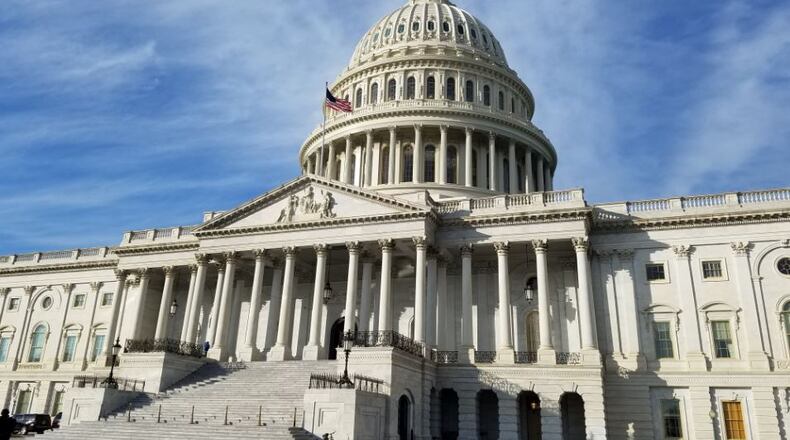"We have a strategy, we have plans, and we have a vision of where it's going," said Rep. Barry Loudermilk (R-GA) as GOP lawmakers filed out of their closed door session.
Aides to Speaker Paul Ryan said Republicans were given a run down about the legislative process that will be involved to replace and repeal the current health care system - a move that will involve approving more than just one bill in 2017.
"He told members this is one of President-elect’s top priorities for Congress and one of the first things we will do in the House," said Ryan spokeswoman AshLee Strong.
"The timing on that, we've been working closely with the President-Elect and his transition team," said Rep. Markwayne Mullin (R-OK), who said the new proposed system won't be ready to go right away in January.
"It may take a while," Mullin added, "The problem is, we know this thing is collapsing on us."
And it also may take a while because of the details involved in setting up something new - and to accomplish that, Republicans will certainly need some Democrats in the Senate to help put the pieces together on what comes next.
That plan to first repeal - then move later to replace the system - has Democrats up in arms, as they push the argument that Republicans are going to simply destroy the health insurance system - a "disaster waiting to happen," said Sen. Ed Markey (D-MA).
It was a year ago that the Senate voted to approve a special "reconciliation" bill that repealed parts of the health law, known as the "Restoring Americans' Healthcare Freedom Reconciliation Act of 2015."
That plan was ultimately vetoed by President Obama - the difference in 2017 will be stark - as President Trump will be able to sign that into law instead.
But, because of some complicated procedural rules in the Congress, that reconciliation law can only repeal certain portions of the health law - not the whole thing.
For example, that GOP plan put restrictions on the health insurance exchanges, phased out the subsidies to help people buy insurance, ended the tax penalties for those who did not buy insurance, ended various taxes from the health law, and phased out an expanded Medicaid program.
There were a handful of GOP lawmakers in the House who voted no - arguing that the entire law should have been repealed in one move - but that would require a bill to get 60 votes in the Senate.
And that will still be part of the calculus for Republicans next year.
About the Author
